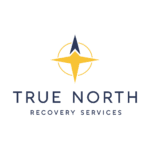What Are The Different Types Of Treatment?
If you’ve never received addiction treatment before, it can be very difficult to navigate. Below is an overview of the different levels of care people may receive during their journey in recovery. The highest form of care is called detox. Also commonly referred to as the drunk tank, the goal here is to provide medical stabilization from substances. After 2-7 days of detox, most clinical teams will recommend a step down in treatment care.
The next level down is inpatient treatment and is composed of sober living homes and residential treatment centers (RTC). To start, most insurances cover 14-21 days of RTC. The main objective is to provide medical stabilization, psychoeducation and relapse prevention planning. If you’re struggling to string together more than a handful of days, this might be an appropriate form of care. The other type of inpatient treatment is sober living. Unlike RTC, insurance isn’t accepted, there’s no medical stabilization or clinical component (in most facilities). The main objective here is to provide long term residential living for people struggling with sobriety. Since it takes time for the brain to heal and new behaviors to develop, sober living is a great segway to transition from RTC. If you attend either type of facility, you can expect to receive drug and alcohol testing.
From here, people usually go into partial hospitalization programming (PHP) or intensive outpatient programming (IOP). The main difference between PHP and IOP is the time spent in group therapy and medical services provided. PHP includes 25 hours of group therapy for 5 days per week and access to a medical doctor. Conversely, IOP consists of 3 hours of group therapy for 3 days per week. Both programs take insurance, provide group and individual therapy, drug/alcohol testing, sometimes case management and allow you to live at home or a sober living house. The next step down is an outpatient program (OP). This includes anything less than 9 hours of group therapy per week, individual therapy session, and drug/alcohol testing.
What’s Recovery Coaching?
Sober coaching or recovery coaching is a great way for people to receive extra recovery support. This is perfect for people who have a track record of sobriety but may have recently experienced a relapse. If you’ve already been through the higher forms of care outlined above, this is a great level to start at before seeking out higher levels of care.
Questions To Consider
For the uninitiated, there’s a lot of variables that can contribute to the quality of your care.
- How long is treatment?
- Do you take ___ insurance?
- If I don’t have insurance, how much will treatment cost?
- Do you offer full or partial scholarships?
- What, if any, amenities does your program offer (i.e. gym access, nutrition classes, animal assisted therapy, community events, etc)
- Do you have medical access for IOP?
- What’s included in your RTC program?
- How long does IOP and PHP last?
- What types of therapy do you provide?
If you or your loved one is considering addiction treatment, don’t waste time! Contact our team today to learn more about our services and how we can help you achieve sobriety.


